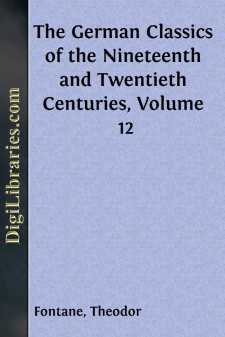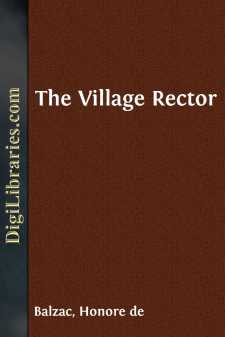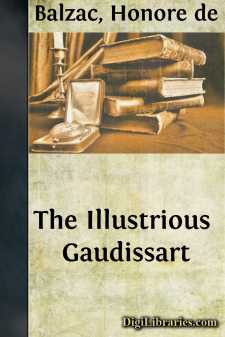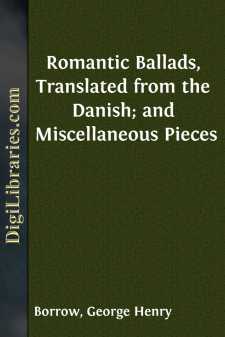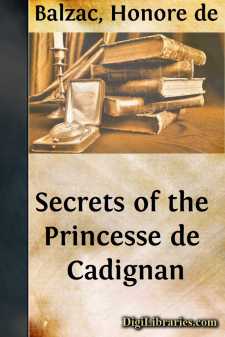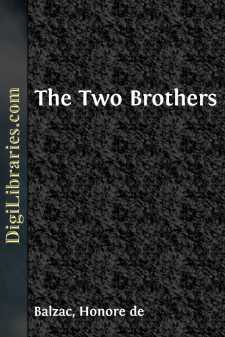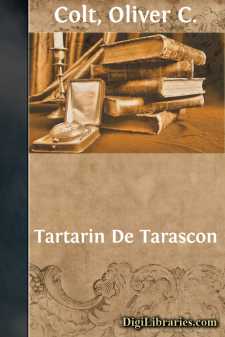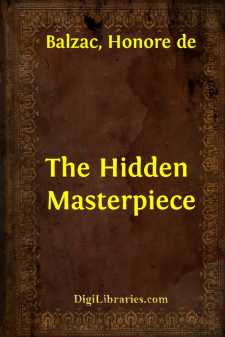Literary Collections
- American 84
- Ancient, Classical & Medieval 14
- Asian 1
- Australian & Oceanian 1
- Canadian 55
- Continental European
- English, Irish, Scottish, Welsh 179
- Essays 160
- General 24
- Letters 46
- Middle Eastern 1
Continental European Books
Sort by:
by:
Theodor Fontane
THE LIFE OF GUSTAV FREYTAG By ERNEST F. HENDERSON, PH.D., L.H.D. Author of A History of Germany in the Middle Ages; A Short History ofGermany, etc. It is difficult to assign to Gustav Freytag his exact niche in the hall of fame, because of his many-sidedness. He wrote one novel of which the statement has been made by an eminent French critic that no book in the German language, with the exception of...
more...
by:
Honore de Balzac
I. THE SAUVIATS In the lower town of Limoges, at the corner of the rue de la Vieille-Poste and the rue de la Cite might have been seen, a generation ago, one of those shops which were scarcely changed from the period of the middle-ages. Large tiles seamed with a thousand cracks lay on the soil itself, which was damp in places, and would have tripped up those who failed to observe the hollows and ridges...
more...
by:
Honore de Balzac
CHAPTER I The commercial traveller, a personage unknown to antiquity, is one of the striking figures created by the manners and customs of our present epoch. May he not, in some conceivable order of things, be destined to mark for coming philosophers the great transition which welds a period of material enterprise to the period of intellectual strength? Our century will bind the realm of isolated...
more...
by:
Edward Dowden
PREFACE French prose and French poetry had interested me during so many years that when Mr. Gosse invited me to write this book I knew that I was qualified in one particular—the love of my subject. Qualified in knowledge I was not, and could not be. No one can pretend to know the whole of a vast literature. He may have opened many books and turned many pages; he cannot have penetrated to the soul of...
more...
Through gloomy paths unknown— Paths which untrodden be,From rock to rock I roam Along the dashing sea. BOWRING. * * * * * NORWICH:printed and published by jarrold and sons.1913 Contents. Preface Lines from Allan Cunningham to George Borrow The Death-raven. From the Danish of Oehlenslæger Fridleif and Helga. From the Danish of Oehlenslæger Sir Middel. From the Old Danish...
more...
by:
Honore de Balzac
CHAPTER I. THE LAST WORD OF TWO GREAT COQUETTES After the disasters of the revolution of July, which destroyed so many aristocratic fortunes dependent on the court, Madame la Princesse de Cadignan was clever enough to attribute to political events the total ruin she had caused by her own extravagance. The prince left France with the royal family, and never returned to it, leaving the princess in Paris,...
more...
by:
Honore de Balzac
CHAPTER I In 1792 the townspeople of Issoudun enjoyed the services of a physician named Rouget, whom they held to be a man of consummate malignity. Were we to believe certain bold tongues, he made his wife extremely unhappy, although she was the most beautiful woman of the neighborhood. Perhaps, indeed, she was rather silly. But the prying of friends, the slander of enemies, and the gossip of...
more...
by:
Honore de Balzac
THE ELIXIR OF LIFE One winter evening, in a princely palace at Ferrara, Don Juan Belvidero was giving a banquet to a prince of the house of Este. A banquet in those times was a marvelous spectacle which only royal wealth or the power of a mightly [sic] lord could furnish forth. Seated about a table lit up with perfumed tapers, seven laughter-loving women were interchanging sweet talk. The white marble...
more...
by:
Oliver C. Colt
Introduction. The tale of Tartarin de Tarascon was written by Alphonse Daudet in 1872, and was one of the many works which he produced. In it he pokes gentle fun at a type of Frenchman who comes from the Midi, the area where he himself was born. Tartarin has characteristics which may remind the English-speaking reader of Toad of Toad Hall, a boastful braggart, easily deceived, but good-hearted au fond....
more...
by:
Honore de Balzac
CHAPTER I On a cold morning in December, towards the close of the year 1612, a young man, whose clothing betrayed his poverty, was standing before the door of a house in the Rue des Grands-Augustine, in Paris. After walking to and fro for some time with the hesitation of a lover who fears to approach his mistress, however complying she may be, he ended by crossing the threshold and asking if Maitre...
more...


